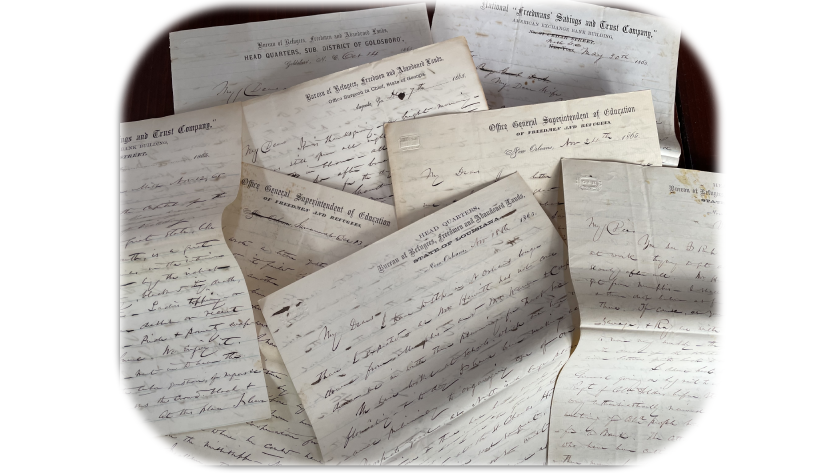June 4, 2021 –
This Summer and into the Fall, I was funded by the Jefferson Trust flash funding grants to organize, scan, and transcribe the letters of Rev. John W. Alvord. Alvord was a significant historical figure best known for his Letters from the South, Relating to the Condition of Freedmen, Addressed to Major General O. O. Howard, published in 1870. The private, previously unpublished letters in this collection cover Alvord’s years as a field chaplain who traveled with the Army of the Potomac during its 1861-64 Virginia campaigns and his subsequent term as General Superintendent of Education for the Freedmen’s Bureau, ca. 1865-68.
During the Civil War, Rev. Alvord spent much of his time in field hospitals ministering to the wounded and dying. In letters written to his family and others, he offers a first-hand view of the war, with detailed observations of chaotic scenes that followed the Union defeat at the Seven Days Battles. In October 1865, Alvord was appointed Freedmen’s Bureau Inspector of Schools and Finances by Gen. O.O. Howard. From his headquarters in Washington, D.C., Alvord traveled through the South to meet with local officials and community leaders. His letters, many written on ornate Freedmen’s Bureau letterhead, bear the names of the cities he visited: Savannah, GA, Hilton Head, SC; St. Augustine, FL; Beaufort, SC; Mobile, AL; Richmond, VA; Goldsboro, NC; Charleston, SC; Tallahassee, FL; Mobile, AL; Port Hudson, LA; Jackson, MS; Vicksburg, MS; Beaufort, SC; and Augusta, GA.
While some of Alvord’s letters are easy to read, having been “duplicated” in a legible script, most are written in Alvord’s original scrawl, which takes significant effort to decipher. To address this problem, the project team will use FromThePage, a cutting-edge transcription software program that will allow multiple students and faculty advisors to collaborate on transcriptions. This Jefferson Grant funded pilot project will make the previously unpublished collection of private letters freely accessible to researchers and K-16 educators through the John L. Nau Center’s Digital Projects page and through a companion Neatline exhibit. Student researchers will gain valuable experience in digital and public history by transcribing and annotating handwritten primary source documents using state-of-the-art software for group collaboration.
Phase I of the project involves my scanning of the letters with a high-quality scanner and organizing the physical and digital scans to prepare for Phase II in the Fall, where I will hire student researchers to help transcribe these letters using the software FromThePage and Neatline.
